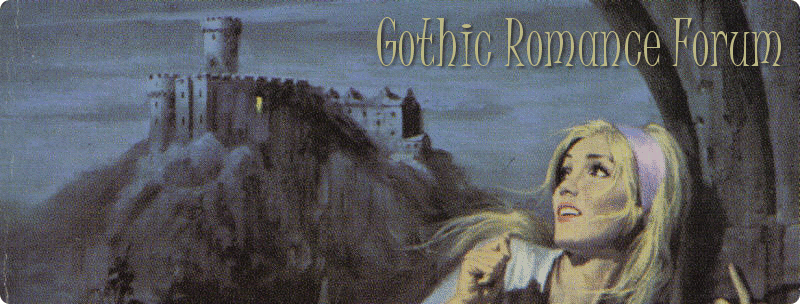07-03-2011, 10:58 AM
Aha, I see where the misunderstanding arose. Your second quote is from a paragraph where I agreed with you in general that there should be a collaboration between reader and author. I gave my reaction to the amount and difficulty of inside jokes/references in general. I didn't say that I couldn't understand Mary Stewart's jokes/references and consequently felt stupid or resentful. She just used quotations, and you usually don't need to know the poets or books they came from to understand how the quote applies to the situation.
But if she had overdone it, had referred to poets or books or whatever that most readers would never have heard of, keeping them ignorant of her specific meaning, then I indeed would have felt frustration and resentment. The book I read before The Ivy Tree was Wingarden by Elsie Lee. In my review you can see that I hated her use of some inside jokes because I didn't grasp their meaning right away. I needed Google to find out that fan-tan is a game like mah-jong, but when I searched plon-plon, I only found that it's a nickname for Napoleon Bonaparte, which in my opinion made no sense at all.
So I do lay the burden on the author: she needs to know her audience. Therefore, she does indeed need to keep the level of supposedly shared knowledge in check. For example, if an author of gothic romances knows a lot about filately because it's one of her hobbies, she shouldn't out of the blue mention Wuhu Local Post and think the reader knows what she's talking about. On the other hand if she's writing a book specifically for stamp collectors, Wuhu Local Post might need no further clarification.
So to be perfectly clear: I don't think Mary Stewart made references that were too difficult for the average reader to grasp. I do find that in this book she uses a poetic, detached kind of language that does not speak to me, an average reader.
Phew.

As to your question re other Stewart's I read: so far I've only reread Nine Coaches Waiting and Touch Not the Cat, which I both liked better than The Ivy Tree. The only book I remember something about from my first reading ages ago is Madam Will You Talk; I liked the car chases in France. I'll have to tackle that one next, I suppose.
BTW, right now I'm rereading Victoria Holt's The Mask of the Enchantress, because that also is about taking over someone else's identity. See how they compare....
But if she had overdone it, had referred to poets or books or whatever that most readers would never have heard of, keeping them ignorant of her specific meaning, then I indeed would have felt frustration and resentment. The book I read before The Ivy Tree was Wingarden by Elsie Lee. In my review you can see that I hated her use of some inside jokes because I didn't grasp their meaning right away. I needed Google to find out that fan-tan is a game like mah-jong, but when I searched plon-plon, I only found that it's a nickname for Napoleon Bonaparte, which in my opinion made no sense at all.
So I do lay the burden on the author: she needs to know her audience. Therefore, she does indeed need to keep the level of supposedly shared knowledge in check. For example, if an author of gothic romances knows a lot about filately because it's one of her hobbies, she shouldn't out of the blue mention Wuhu Local Post and think the reader knows what she's talking about. On the other hand if she's writing a book specifically for stamp collectors, Wuhu Local Post might need no further clarification.
So to be perfectly clear: I don't think Mary Stewart made references that were too difficult for the average reader to grasp. I do find that in this book she uses a poetic, detached kind of language that does not speak to me, an average reader.
Phew.

As to your question re other Stewart's I read: so far I've only reread Nine Coaches Waiting and Touch Not the Cat, which I both liked better than The Ivy Tree. The only book I remember something about from my first reading ages ago is Madam Will You Talk; I liked the car chases in France. I'll have to tackle that one next, I suppose.
BTW, right now I'm rereading Victoria Holt's The Mask of the Enchantress, because that also is about taking over someone else's identity. See how they compare....



